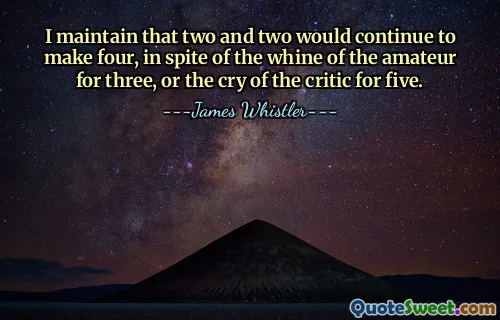
Let mental suffering be intense enough, and it becomes a sort of carminative.
This quote eloquently explores the paradoxical nature of intense mental suffering. It suggests that profound emotional or psychological pain, while inherently distressing, can lead to a kind of relief or cleansing—a calming effect much like a carminative, which is a substance used to ease digestive discomfort. From a psychological perspective, this highlights how confronting and experiencing deep suffering might serve as a cathartic process, enabling individuals to purge internal turmoil and achieve clarity. Often, people tend to avoid confronting their mental anguish, fearing the discomfort it brings. However, this quote prompts us to consider that under certain circumstances, embracing such pain can facilitate healing. The idea resonantes with therapeutic concepts where confronting difficult emotions rather than suppressing them leads to personal growth. Within literature and philosophy, suffering has frequently been depicted as a transformative force—think of the Stoic philosophers advocating resilience or the idea that hardship refines character. Furthermore, the comparison to a carminative underscores a natural, almost medicinal, benefit lurking within pain itself—that it might help us 'digest' complex emotions, leading to emotional relief or insight. In the context of the novel 'Lud in the Mist' by Hope Mirrlees, which often explores the strange and fantastical aspects of human experience, such a notion invites us to reconsider suffering not merely as punishment but as an essential part of inner healing and transformation. It challenges the reader to reframe their understanding of pain—from a purely negative experience to a potential catalyst for psychological or spiritual detoxification. Embracing this perspective offers a more nuanced approach to pain, recognizing its dual role as both a burden and a remedy.






